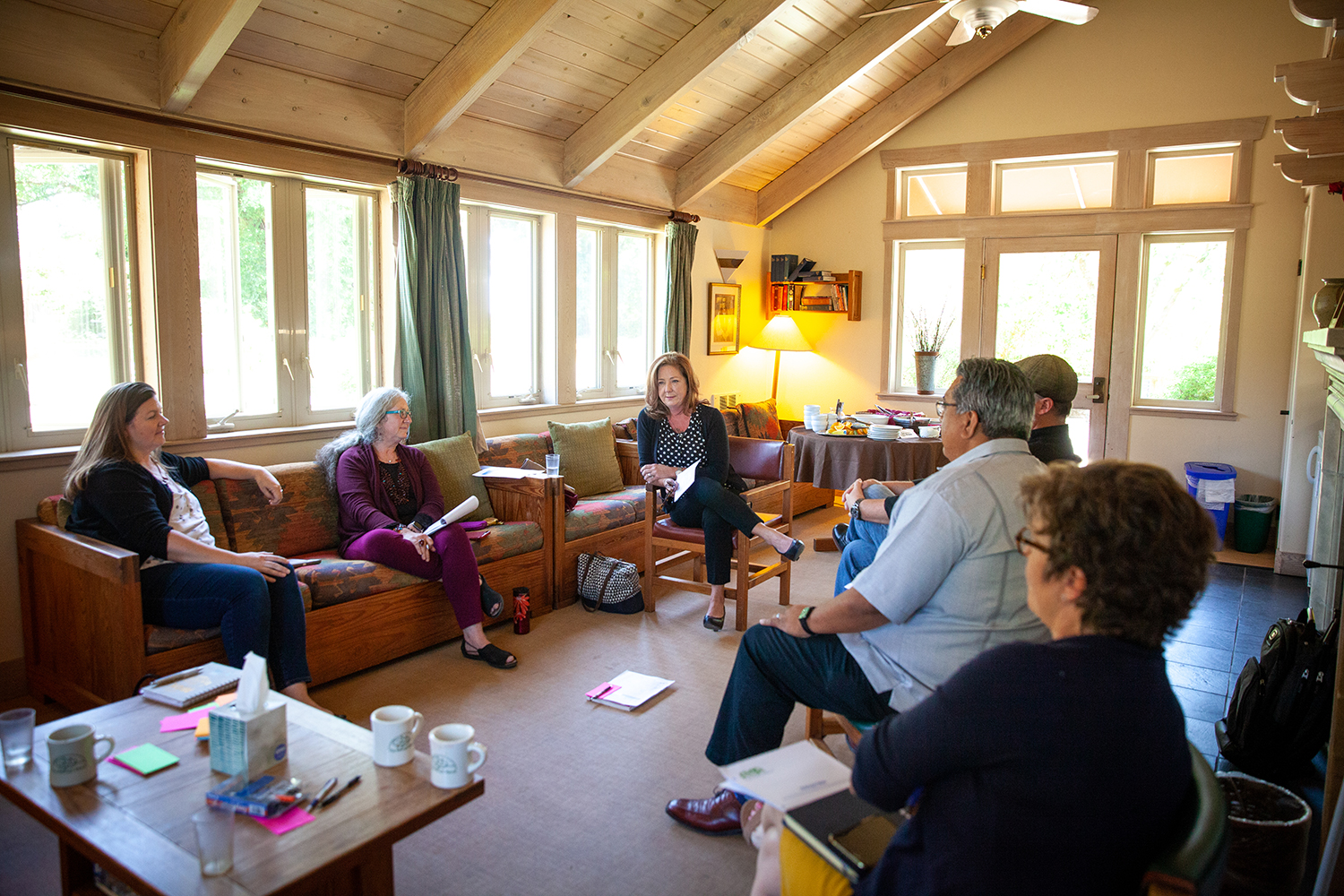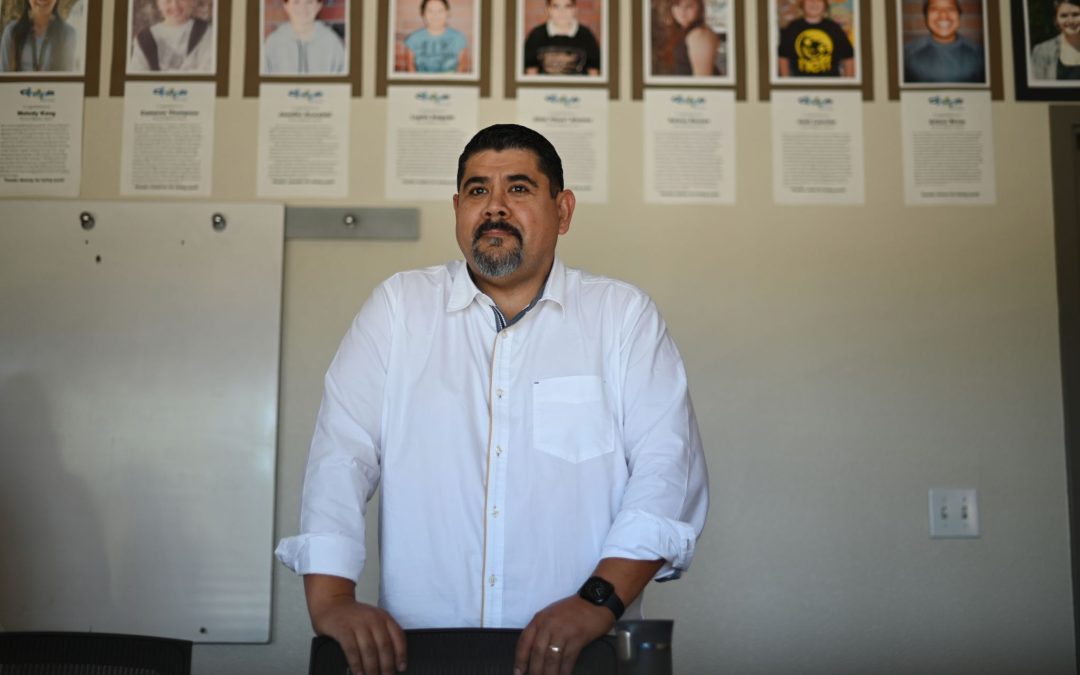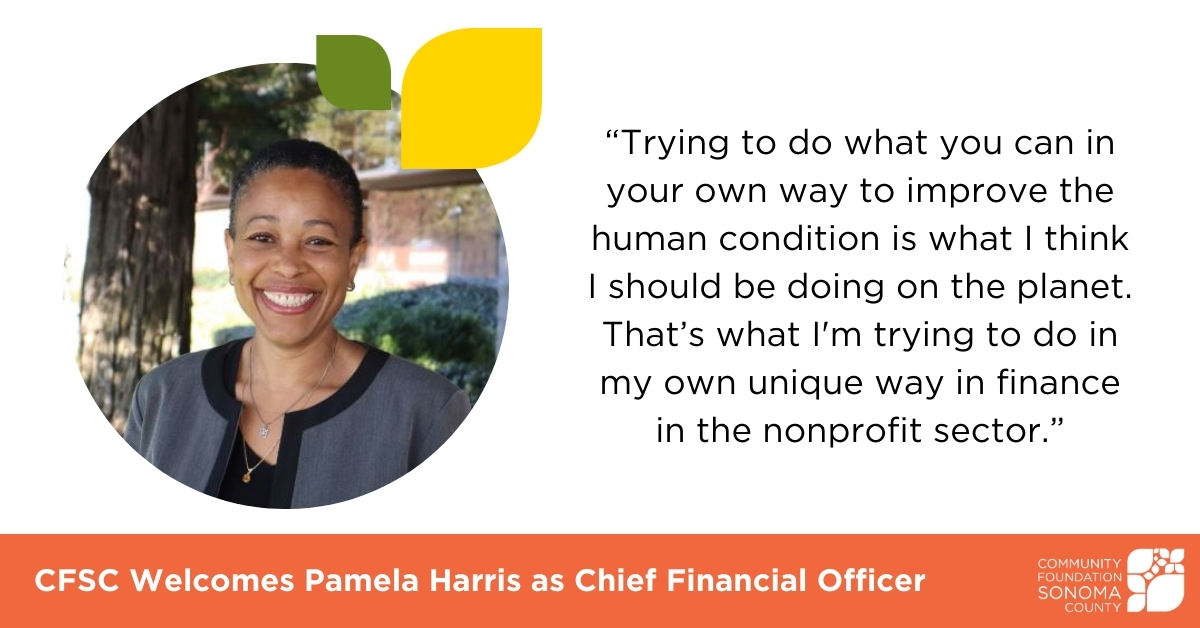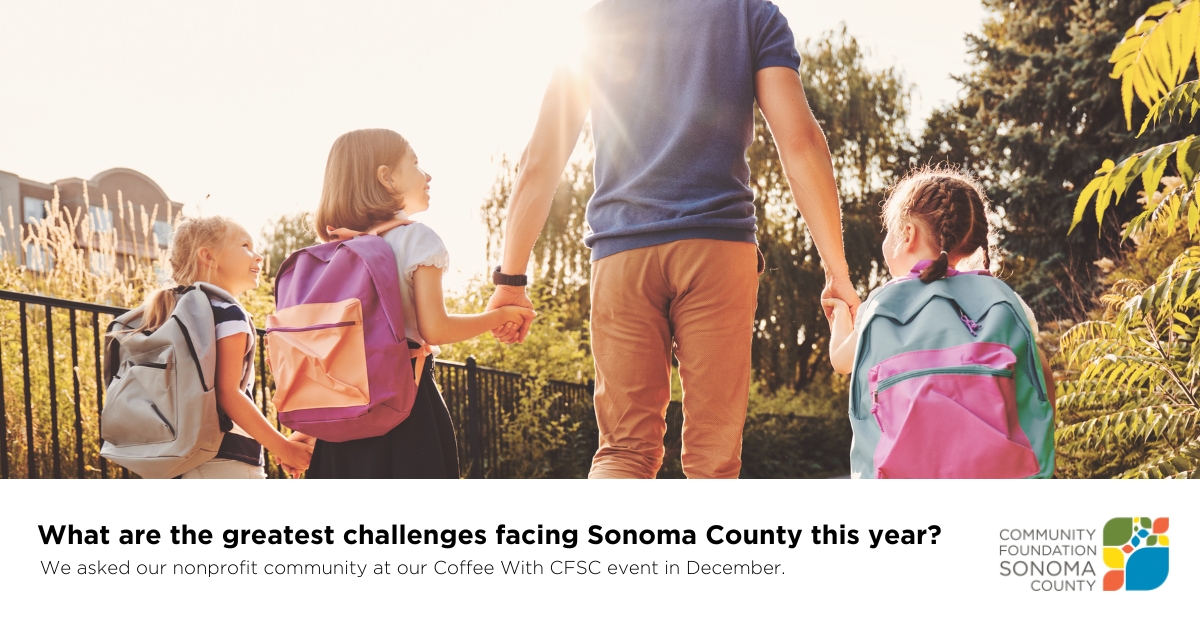In 2019, we launched a unique partnership with two other funders, First 5 Sonoma County and the Healthcare Foundation of Northern Sonoma County, to launch Resilient Organizations: Sustainable, Impactful, Effective (ROSIE). The ROSIE program was established to provide grant funding and peer collaboration opportunities for early childhood education organizations to work together to strengthen their programs. It also included professional coaching support from Fiscal Management Associates (FMA), who guided leaders through an assessment of their organization’s current infrastructure and conducted a financial trends analysis for each organization, creating an action plan to set the stage for long-term sustainability.
Local leaders in the field, representing Community Action Partnership of Sonoma County, La Luz Center, Petaluma People Services Center, Extended Child Care Coalition, North Bay Children’s Center, Child Parent Institute, and Community Child Care Council (4Cs), joined forces to collaborate in the process.
The intention was to participate in two years of training around leadership, capacity building, infrastructure, and more. The results included engaging each nonprofit in organizational assessments, six group workshops, five half-day peer exchanges for executive directors and CEOs, about 15 hours of coaching for each organization, implementation projects, financial support, on-site strategy lab, and two webinars after Covid shelter in place orders; all impressive considering year two of ROSIE took place during the first year of the global coronavirus pandemic. Participants also received guidance and support for managing the Covid crisis, including strategizing how to be financially sustainable during Covid and how to adapt services under shelter in place orders.
We initially shared about this program after it first launched two years ago. Now, as the program wraps up, we wanted to check back in with the participants to hear about their progress and outcomes.
Susan Gilmore, President and CEO at North Bay Children’s Center, reported that participation in ROSIE was extremely rewarding. Among the many benefits, she says that North Bay Children’s Center was able to reorganize its finance department, purchase a new accounting system, and secure a PPP loan during Covid.
“The PPP loan came up in almost every interview, that the requirements to apply for those funds were really complicated and difficult to figure out,” says Angie Dillon-Shore, the executive director at First 5 Sonoma County. “The support our technical consultants provided to the cohort, both the webinars that they hosted, and the individual support to get those applications submitted, were a hugely valuable resource at the beginning of the pandemic.”
Dillon-Shore also reported that another key strength reported by participants was the value of executive directors having dedicated space carved out to meet with staff and senior leadership “to focus on things like fundraising, sustainability issues, and leadership succession,” she said. “One ED commented that the opportunity to cross-pollinate between their senior staff and their board members was particularly really unique because that just never happens.”
Gilmore shared similar insights.
“What ROSIE gave us, and I think we value the most, is the gift of time. We never, ever, have the kind of time that we were able to take, as a team, to get away, to get off-site, and not be reacting to something,” said Gilmore. “It wasn’t an emergency. It wasn’t a fire. It wasn’t the pandemic. It was time to really be strategic and forward-thinking, to be together as a team for a full day, to be with other teams like our organization, and to let us build that network and relationship with our colleagues, to really think strategically about growth, and about scenario planning.”
Some of the planning Gilmore did with her team also included collaborating to help provide emergency childcare for medical first responders who were on the front lines of fighting Covid. North Bay Children’s Center also diversified its funding through licensing Garden of Eatin’, a nutrition education program utilized to teach families about the importance of healthy eating choices. North Bay Children’s Center has sold the curriculum to other organizations as a way to increase and diversify their income.
Dillon-Shore points out that the only real issue with a cohort like this is the inevitable competition that exists between organizations that, for the most part, are seeking the same funding. In a limited funding landscape, organizations with similar missions often have to compete against one another for the same grants. With a cohort model bringing these organizations together, opportunities for collaboration—rather than competition—often emerge.
Dillon-Shore says that some participants plan to continue to dialogue and expand the peer exchange even after the group learning is completed. As funders, collaboration is important to use as well. “It was huge to be able to work together to maximize our funding and be able to really get a top-notch consultant; we could not have done this alone as a funder,” says Dillon-Shore, speaking of First 5 Sonoma County’s involvement in the program.
“[This] also gives a really powerful message to organizations about what’s possible when funders get together and rally around a similar goal. We can achieve so much more together than we can working alone.”
Story by Dani Burlison, photos by Caitlin Childs











